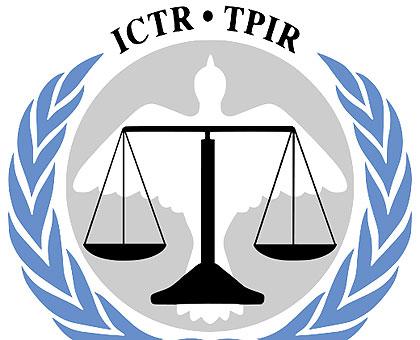The International Criminal Tribunal for Rwanda (ICTR) yesterday ordered the case of an indicted suspect who remains at large to be referred to the Rwandan High Court for trial, signifying its recognition of the judicial reforms taking place in the country.


The International Criminal Tribunal for Rwanda (ICTR) yesterday ordered the case of an indicted suspect who remains at large to be referred to the Rwandan High Court for trial, signifying its recognition of the judicial reforms taking place in the country.The referral chamber of the ICTR, which is trying key suspects implicated in the 1994 Genocide against the Tutsi in Rwanda, ordered that the case regarding fugitive, Charles Sikubwabo, should be referred to the authorities in Kigali for trial.The ICTR’s Prosecutor had requested that the court refers the case to Rwanda in November 2010, but after some reluctance by the judges, the order was finally made. Sikubwabo, a former mayor of Gishyita in the western Kibuye prefecture, is charged with genocide or complicity in genocide, as well as conspiracy to commit genocide and crimes against humanity. Although this is the second case that the court is handing over to the office of the Rwandan Prosecutor General this month, relations between the two institutions have not always been smooth. Indeed, it has not escaped observers that so far the Tribunal has been more decisive in handing over case files of fugitives than the suspects in their custody.Earlier, files relating to the case against Fulgence Kayishema were passed on to Prosecutor General Martin Ngoga, but the referral of the suspect Jean Uwinkindi to Rwanda for trial is still stuck at the Tribunal over issues of procedure and details about monitoring mechanism.A former Pentecostal pastor, Uwinkindi was arrested in Uganda in June 2010 and faces charges of genocide, conspiracy to commit genocide and extermination as a crime against humanity. The Tribunal has insisted on the establishment of a monitoring mechanism of the trial before the suspect is handed over.In another matter, the Tribunal will hear on April 12, the application for the transfer of the case against Bernard Munyagishari, who, according to a 2005 indictment, was a commander of the Interahamwe militia. He is alleged to have created a special unit of the militia for the rape and murder of Tutsi women.He was arrested on May 26, 2011 in the eastern part of the Democratic Republic of Congo and was transferred to the Tribunal.The Tribunal had ruled that should the ex-head of the judicial police in the then Kibuye prefecture be arrested, he be returned to Rwanda to face trial.Not more than 30 days In making the announcement yesterday, the judges ordered that Sikubwabo’s case be handed over to the Prosecutor-General of Rwanda, as soon as possible and no later than 30 days after the ICTR decision has become final. The referral chamber expressed its hope that Rwanda, in accepting referrals from the ICTR, will put into practice commitments it has made about its good faith, capacity and willingness to enforce the highest standards of international justice in the referred cases. The ICTR judges requested Rwanda to provide the Tribunal or the International Residual Mechanism for Criminal Tribunals with quarterly reports on efforts taken to apprehend the fugitive until the time when he is arrested or Rwanda receives news and confirmation of his death. The ICTR is based in Arusha, Tanzania and was established after the Rwandan genocide of 1994 against the Tutsis in which an estimated, 1 million people were killed during three months of bloodletting that followed the death of the then-president Juvenal Habyarimana.It is an international court that was set up by the United Nations Security Council and is located in the neighbourhood of the African Court on Human and People’s Rights, which was later merged with the African Court of Justice to create the African Court of Justice and People’s Rights. This court is likely to be tasked with the monitoring of the trials of suspects handed over to Rwanda.The ICTR court has jurisdiction over matters of genocide, crimes against humanity and war crimes and has so far concluded over 50 cases and convicted about 30 people. But it is performance has always come under harsh scrutiny, with questions about the disparity in the resources at its disposal and its rate of conviction being the bone of contention. The United Nations Security Council has called upon the Tribunal to finish its work by 31 December 2014 to prepare for its closure and transfer of its responsibilities to the International Residual Mechanism for Criminal Tribunals, which will begin functioning as the ICTR branch on 1 July 2012.In March 2010, the ICTR announced plans to digitise all video recordings of the trials, both audio and video, in all three languages (English, French, Kinyarwanda). This is part of a larger project that included digitising audio recordings.


